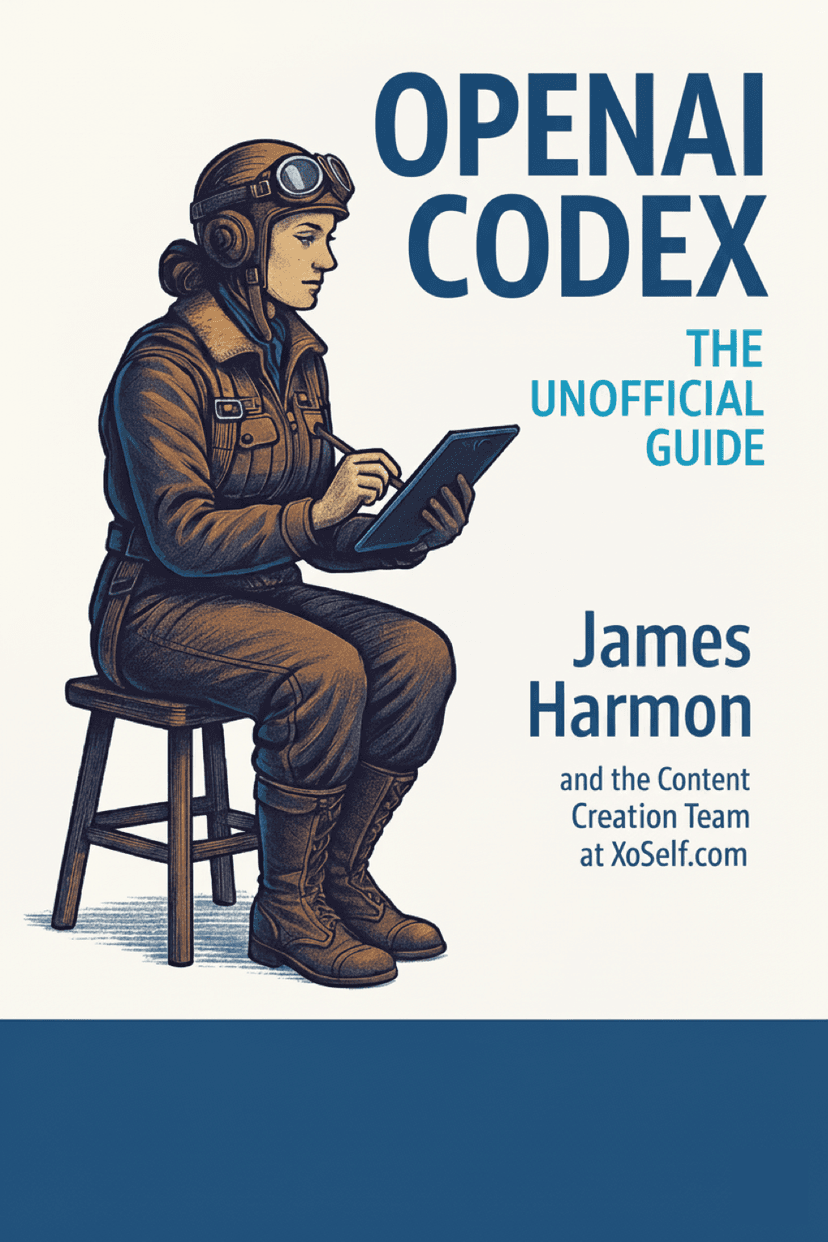OpenAI Codex: The Unofficial Guide

Production-Ready Patterns for Codex-Powered Teams
By James Harmon with forward-looking contributions from the OpenAI-focused enablement group at XoSelf AI.
Translate Codex pilots into sustained business impact. The book documents how product teams instrument guardrails, design prompt libraries, and measure code quality improvements when shipping with OpenAI Codex at scale.
Built for OpenAI-Centric Engineering Leaders
Prompt Library Blueprints
Curate reusable prompt primitives for completion, refactor, and test generation inside Codex-enabled IDEs.
API Integration Patterns
Deploy Codex endpoints with Node.js, Python, and serverless runtimes while meeting latency budgets.
Governance & Guardrails
Implement policy checks, evaluation harnesses, and auditing workflows tailored to OpenAI policies.
Change Management
Coach engineers through pairing rituals, sprint metrics, and ROI reporting for Codex adoption.
Chapter Overview
Chapter 1: Codex Architecture and IDE Extensions
Understand Codex model variants, latency tradeoffs, and how to operationalize the VS Code extension.
Chapter 2: Pattern-Driven Prompt Engineering
Build prompt catalogs that encode architecture decisions, refactors, and regression tests.
Chapter 3: Delivery Pipelines & Evaluation
Integrate Codex into CI pipelines, telemetry dashboards, and reliability scoring frameworks.
Chapter 4: Security, Compliance, and Data Privacy
Apply red-teaming recipes, data classification, and incident response specific to OpenAI services.
Chapter 5: Scaling Program Management
Establish center-of-excellence rituals, KPI dashboards, and enablement sprints.
Bonus Workshop Toolkit
Access editable slide decks, evaluation rubrics, and Codex onboarding checklists the authors use with Fortune 500 teams.
Lifecycle Checklists
Follow a readiness scorecard that tracks data retention, prompt QA, and incident escalations tailored to OpenAI's platform policies.